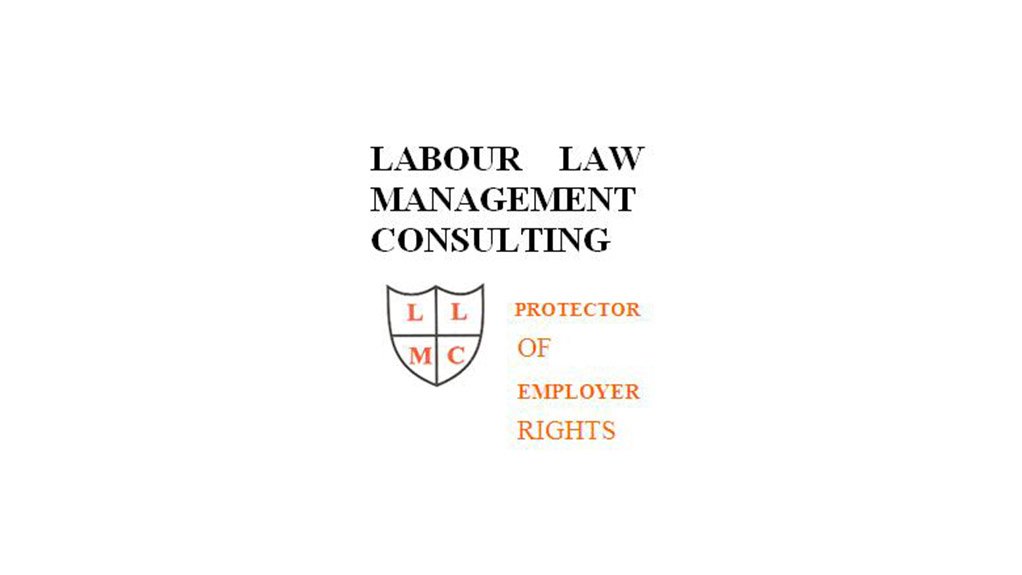Section 6(1) of the Employment Equity Act (EEA) prohibits employers from unfairly discriminating, directly or indirectly, against an employee in any employment policy or practice on numerous grounds including gender and sex. Also, section 6(3) categorises, as unfair discrimination, harassment of an employee on many grounds including sex and gender, and prohibits such practices.
In view of the fact that the legislators refer separately to “sex” discrimination and “gender” discrimination in the EEA they must see “sex” and “gender” as being different to each other. However, in the definition section of the EEA neither “sex” discrimination nor “gender” discrimination is defined. As these two terms are often used interchangeably it is important to assess why they have different legal meanings.
One possible distinction that could be drawn between the two terms is as follows: “Gender” discrimination may refer purely to discrimination against an employee because she is female or because he is male. For example, requiring female employees to retire at age 60 and males at the age of 65 is gender discrimination and not sex discrimination because no sex act or sex-related act took place.
Another example of gender discrimination based on my definition would be where the employer forces males to belong to a benefit scheme but exempts females. This has frequently been the case in industry where women are exempted from medical aid membership if their husbands belong to a medical aid. The way to remedy this type of gender discrimination is to amend the rule to say that any employee may be exempted from membership if his or her spouse already belongs to a medical aid.
A further example of gender discrimination would be where men are promoted into managerial positions at the expense of women who are suitable for the posts.
On the other hand “sex” discrimination may refer to the instance where, regardless of the employee’s gender, the employer carries out an unacceptable sex-related act against him/her. For example, the employer may have harassed the employee sexually by grabbing his buttocks. If, for instance, the harasser and victim were both male there is clearly no gender discrimination but rather unfair behaviour relating to sex in the sense of sexual desire. Even if the employer and employee were of different genders the act is a sexual one rather than discrimination on the grounds that the victim is of a particular gender. The gender of the parties becomes secondary and incidental. What is primary is that the employer infringed on the employee’s right not to be touched in a sexual manner.
If my definitions of and distinctions between the two concepts is correct then some legal disputes are being referred incorrectly. For example, in the case of Benjamin vs University of Cape Town (2003, 11 BLLR 1209) Mr Benjamin was turned down for a position of Senior Subject Librarian. However, the position was given to a woman. Benjamin alleged in the Labour Court that this amounted to unfair discrimination based on sex. However, in my view, this should have been a gender discrimination dispute because Benjamin did not allege that there was any sexually related behaviour. His complaint was based solely on the allegation that a female had got the job instead of himself. That is, his complaint revolved purely around the gender classification of the successful and unsuccessful job candidates.
Employers need to remember that sexual discrimination and sexual harassment are legally not confined to touching in a sexual way. As mentioned before, sexual harassment can be any sexually related act that is unwelcome in the eyes of the recipient such as allowing of candid posters, internet visuals, dirty jokes, playfulness, crude language or even physically related compliments in the workplace.
Employers also need to remember that if they allow such incidents to occur, it is the employer (the company or organisation) and not the actual perpetrator who will land up in court. In the case of Ntsabo vs Real Security that I mentioned in a recent article the Labour Court found that a sexually harassed employee had been unfairly discriminated against by her employer. This was not because the employer itself had sexually harassed the employee but because the employer did not take the necessary action to deal with the behaviour of the perpetrator. As the employer thereby infringed the provisions of section 60 of the Employment Equity Act the Court awarded substantial damages against the employer.
It is also possible that discrimination can take place that involves both my definitions of sex and gender discrimination at the same time. For example, in a company where women are not promoted into management positions because of their gender the male MD may offer a female employee a promotion if she sleeps with him. Or he may refuse to consider her application because she has refused to sleep with him. This involves both a barrier against employees because they are women and sexually motivated behaviour prejudicial to the victim.
Whether the employer’s unwarranted act is sexual in nature or discriminates against a particular gender it is likely to be found to be unfair discrimination. Should it lead to resignation or dismissal it could be seen to be automatically unfair. This could make the employee very rich indeed at the cost of the employer.
For enquiries re our Johannesburg seminar, WALKING THE NEW LABOUR LAW TIGHTROPE scheduled for 22 August 2014 please contact Ronni on ronni@labourlawdvice.co.za or 0845217492.
Written by lvan lsraelstam, Chief Executive of Labour Law Management Consulting. He may be contacted on (011) 888-7944 or 0828522973 or on e-mail address: ivan@labourlawadvice.co.za.
This article first appeared in the Star.
EMAIL THIS ARTICLE SAVE THIS ARTICLE
To subscribe email subscriptions@creamermedia.co.za or click here
To advertise email advertising@creamermedia.co.za or click here











